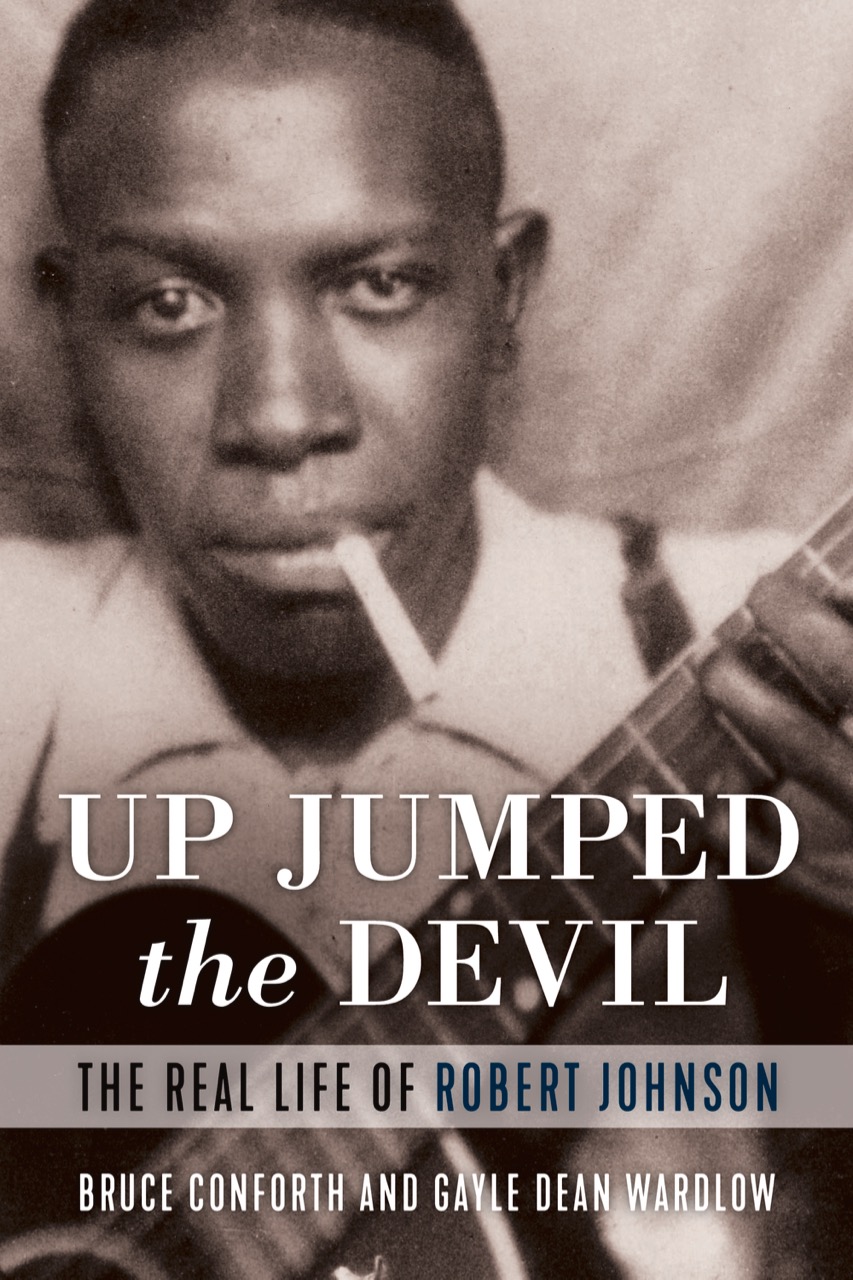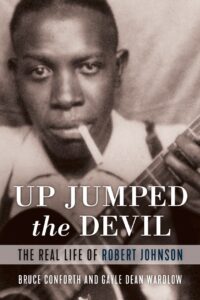Up Jumped The Devil – The Real Life of Robert Johnson, Bruce Conforth and Gayle Dean Wardlow
Bruce Conforth and Gayle Dean Wardlow, the authors of Up Jumped The Devil: The Real Life of Robert Johnson, are not shy about asserting their purpose for writing this biography. They admit that they’re “[hoping] to free Johnson from being the sign and myth that blues fans created and return him to his human particulars.” It’s this myth-busting desire that fuels their detailed investigation of Johnson’s short life. In the end though, Conforth and Wardlow do not so much demythologize Johnson as demystify him, and perhaps this is for the best — sometimes we need our cultural myths left intact.
Anyone with even a cursory knowledge of the blues knows the Johnson fable: The infamous rendezvous at that famed Mississippi crossroads where, in exchange for his soul, The Devil turns Johnson into a formidable musician with extraordinary guitar skills. Conforth and Wardlow accurately locate the metaphor of the “crossroads,” along with the idea of the Faustian bargain, solidly within the traditions of voodoo and trace its historical heritage back to its African roots. It’s fascinating reading and sheds considerable light upon how these sacred myths take hold and spread. And although Conforth is a retired professor of folklore and American history at the University of Michigan, he largely avoids the kind of academic jargon that’s often deadly in biographies.
Yet, this biography is overflowing with impeccable research, and I imagine Conforth and Wardlow are correct when they suggest that what is now unknown about Johnson’s life will more than likely stay that way. Through first-person accounts from those who knew Johnson, and their own carefully-crafted analysis, the authors supply their audience with precise details of Johnson’s often harrowing world of share-cropping and itinerant wandering. For instance, their accounts of Johnson’s recording sessions in Texas are superb examples of biographical narrative; so too is their portrayal of Johnson’s brutal death, at twenty-seven, and the speculation surrounding its details.
Johnson is an enigmatic character given his mythic stature in the development of the blues, and this biography does much to lift the haze through which we had viewed his life. It traces Johnson’s early urban-oriented childhood in Memphis through his forced relocation to a share-cropper’s cabin in rural Mississippi to his life as a rambling musician and finally to his death from poisoning in 1938. It deftly examines the effects his experiences, specifically the death of his wife and unborn son, had upon his life and music.
Oddly though, in the end Conforth and Wardlow’s detailed analysis of Johnson’s life doesn’t lessen the power of its mythic qualities, and this is why I’d argue that this biography demystifies rather than demythologizes Johnson. Conforth and Wardlow expose and resolve many of the mysteries that haunted Johnson’s life and our view of it, and rightly so. But that myth of a lone man bargaining with Satan on a dark night at a forsaken crossroads and then emerging as a musician of otherworldly talent still seizes our imagination, and that too is rightly so.
Up Jumped The Devil: The Real Life of Robert Johnson, Bruce Conforth and Gayle Dean Wardlow, Authors. Chicago Review Press, 326 pages. $30.00




